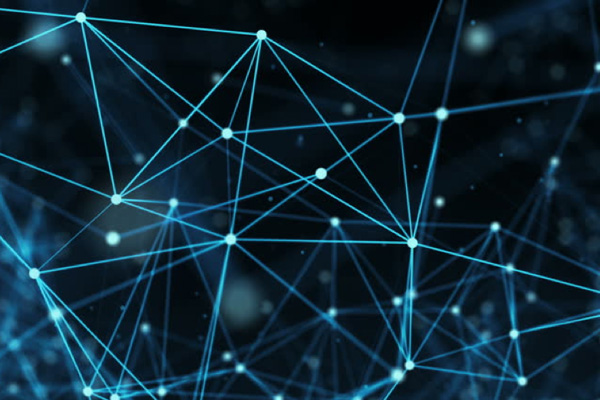How To Create A Cryptocurrency: Everything To Get You Started
How To Create A Cryptocurrency: Everything To Get You Started

Decentralised applications (dApps) offer an alternative way of using and experiencing apps, through the blockchain and smart contracts. dApps are generally regarded as open-source applications that function without a single point of failure, operating on decentralised networks rather than centralised servers.
dApps can run on various blockchain platforms, but at present, their use-case is most frequently seen within the Ethereum ecosystem.
Most applications today, whether on a computer, mobile phone, or the internet, rely on a central authority to verify information and facilitate requests. Take Gmail, for example: Google provides this email service using its private servers, offering it to the public for free while monetising user data through targeted advertising. This setup is based on centralisation, where users have limited control over their data, with Google taking data for the use of their services and systems. Companies such as Google, Microsoft, and Amazon now control vast portions of the internet’s infrastructure, accumulating and monetising large data stores while acting as intermediaries for online services.
Today’s internet requires users to trust centralised service providers with their information. In the best case, this data remains secure. In the worst case, it becomes vulnerable to hacking, surveillance, or misuse by malicious entities. Blockchain-based platforms like Ethereum offer an alternative by decentralising the way data is stored and financial agreements are executed.
dApps differ from traditional applications in both structure and operation. dApps run on blockchain networks, meaning they do not have a single point of control or failure. Instead of a central server seen in traditional application, they operate through a decentralised network of nodes that validate and store transactions. This ensures greater transparency, as all actions within a dApp are recorded on a public ledger. Governance in dApps is often community-driven, with changes implemented through smart contracts and collective voting rather than corporate decisions.
Traditional applications also require users to place trust in the organisation managing the app, assuming it will protect their data and act ethically. dApps remove this need for trust by relying on cryptographic security and immutable smart contracts to execute transactions automatically. While dApps offer increased security and transparency, they also face challenges such as scalability and user adoption, which are still being refined as blockchain technology evolves.
Ethereum enables users to move away from reliance on third-party service providers by decentralising key functions that typically require intermediaries. Instead of depending on centralised servers or cloud-based storage, Ethereum allows applications to run in a peer-to-peer environment, reducing the need for trust in any single entity.
According to the Ethereum white paper, dApps can generally be categorised into three types: those that manage money, those involving financial interactions, and others designed for non-financial purposes such as voting systems. Regardless of their category, all dApps rely on smart contracts to function.
Smart contracts are self-executing agreements stored on the blockchain that automatically enforce the rules and conditions coded into them. These contracts ensure that transactions on a decentralised network are transparent, trackable, and irreversible. While they are called “contracts,” they do not always represent legal agreements in the traditional sense. Instead, they serve as predefined protocols governing how dApps operate without requiring human intervention.
At their core, smart contracts allow users to exchange assets or execute agreements securely without a middleman. A simple example is using Ether, Ethereum’s native currency, to settle a financial contract between two parties. More complex dApps extend this concept beyond financial transactions to applications that interact with external data sources.
Oracles play a crucial role in expanding the functionality of dApps by allowing them to interact with real-world data. Since blockchain networks are designed to be self-contained and immutable, they cannot directly access external information such as weather updates, stock prices, or sports results. Oracles bridge this gap by feeding off-chain data into smart contracts, enabling dApps to execute logic based on real-time events.
A decentralised insurance dApp may require external verification of a natural disaster before processing claims. An oracle can get this data from trusted weather services and relay it to the blockchain. This triggers a smart contract to automatically approve payouts to affected policyholders. DeFi (decentralised finance) applications similarly use oracles to retrieve price feeds from global markets, allowing accurate asset valuations for lending and trading.
There are different types of oracles, including software oracles that pull data from APIs, hardware oracles that gather real-world sensor inputs, and consensus-based oracles that aggregate multiple data sources to prevent manipulation.
Several innovative dApps have emerged in recent years, showcasing the versatility of decentralised technology.
The Golem project aims to create a global marketplace for computing power, allowing users to rent out spare processing capacity to form a decentralised supercomputer.
Augur leverages blockchain to build a decentralised prediction market, enabling users to forecast outcomes and trade based on real-world events.
CryptoKitties is a more playful example as a game where users collect, breed, and trade virtual cats using Ether.
One of the most ambitious dApp models is the Decentralised Autonomous Organisation (DAO). DAOs use Ethereum to create leaderless organisations governed entirely by smart contracts, where rules are established at inception and enforced without central control. These organisations have been used as decentralised venture capital funds, allowing token holders to vote on project funding decisions.
As blockchain technology evolves, so does the concept of dApps. Developers continue to build new applications that challenge centralised business models and explore novel ways to decentralise internet services. Whether in finance, governance, entertainment, or cloud computing, dApps represent a shift towards a more open, transparent, and community-driven digital landscape.
How To Create A Cryptocurrency: Everything To Get You Started
How To Recover Stolen Cryptocurrency | Coin Insider
How Is A Cryptocurrency Exchange Different From A Crypto Wallet
What Is The Main Risk Associated With A Cryptocurrency Hot Wallet?